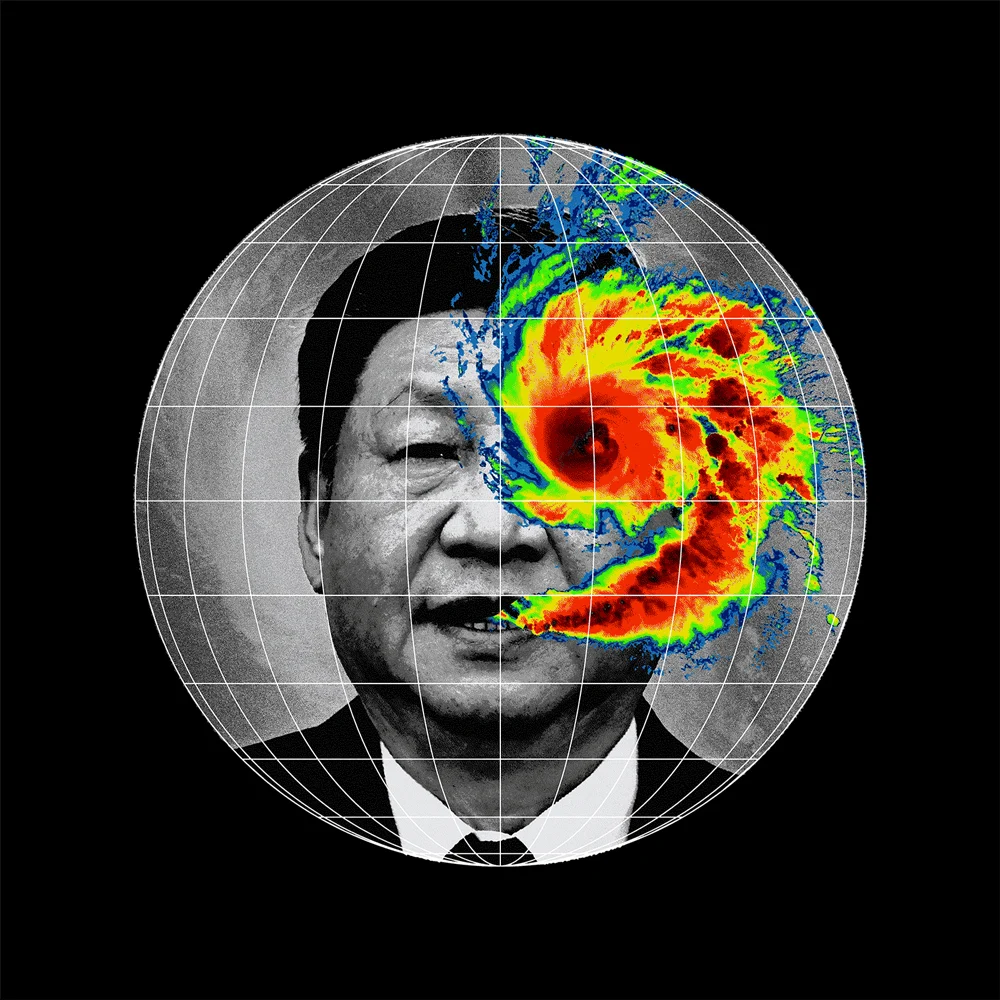China’s proposal for a “Shadow Government” in Taiwan stokes fears amid rising tensions
The controversial proposal to create a “Shadow Government” in Taiwan has sparked global concern and fear among Taiwanese citizens. A mainland Chinese research institute recently proposed establishing a “Shadow Government” in preparation for governing Taiwan after unification. The Cross-Strait Institute of Urban Planning at Xiamen University posted an article on WeChat detailing the proposal.
The timing of the proposal has evoked serious concern at the global level, as it comes amid an increasingly complex international environment. The possibility of Donald Trump being re-elected as U.S. President is mentioned in the article as a factor that could accelerate Beijing’s unification timeline. This adds another layer of uncertainty, as Taiwan’s security and its relationship with the United States are critical to maintaining the current status quo.
The U.S.-based think tank, the Center for Strategic and International Studies (CSIS), shared this article, indicating that the U.S. was deeply concerned about the controversial proposal. The proposal urged Beijing to create a “Shadow Government” that would be ready to take over in Taipei immediately, thereby shortening the risky “transition period” after regime change. “In the face of changes unseen in a century, the international situation is changing rapidly,” the article stated.
“With the probability of Trump coming to power increasing, the timetable for Taiwan ‘reunification’ could be moved up at any time. The unrest in Hong Kong over the last several years has shown that if preparatory plans for the transfer of power are not made fully and properly, it will result in very serious consequences for the smooth transfer of social order in the future,” reported news.com.au portal.
As per the proposal, the institute suggested setting up a fully prepared administrative body, referred to as the “Central Taiwan Work Committee,” which would be ready to take over in Taiwan immediately upon unification—whether achieved through peaceful means or military action. The proposal emphasizes the committee’s role in swiftly assuming control of the island’s administration if unification were to occur. The proposed committee would handle tasks such as currency conversion and infrastructure integration between Taiwan and China while also encouraging Taiwanese participation in takeover discussions.
An editorial in Taipei Times noted that the plan is in line with Beijing’s 2022 white paper on Taiwan, titled “The Taiwan Question and China’s Reunification in the New Era,” which emphasizes the swift and decisive integration of Taiwan into the People’s Republic of China (PRC). A “Shadow Government” would make this annexation less problematic.
The proposal suggested that Beijing is considering a more calculated approach, with a pre-emptive administrative takeover potentially preceding any military action or formal annexation. Though the article was later taken down, it offers a rare insight into the discussions happening in mainland China regarding the future of Taiwan, which Beijing views as an integral part of its territory.
Experts said that the proposal of a Shadow Government cannot be rejected outright, as it is a reminder of the broader narrative of Chinese aggression towards Taiwan, contributing to a climate of fear and uncertainty. The notion that Beijing is actively planning for the governance of Taiwan post-unification has sent a clear message about the ill intentions of the Chinese government regarding its claims over the island.
Beijing has hinted at plans for Taiwan’s future under Chinese rule several times in the past. The “one country, two systems” model, which was proposed for Taiwan’s governance, has been met with widespread rejection in Taiwan, particularly after witnessing the situation in Hong Kong. President Xi Jinping’s call for a “two systems” solution in 2019, coupled with a white paper in 2022 that promised a high degree of autonomy for Taiwan as a special administrative region, has done little to alleviate fears. The white paper’s vague assurances about respecting Taiwan’s social system and way of life have not addressed concerns about potential changes to Taiwan’s political system and governance structure.
In Taiwan, the release of the trailer for the TV series Zero Day has further heightened fears. The series, which depicts a Chinese military attack on Taiwan, has resonated deeply with the Taiwanese public, drawing over a million views in a week. The trailer portrays a scenario in which a Chinese warplane disappears in the Taiwan Strait, leading to a naval blockade and invasion of the island. The depiction of a financial crash, cyberattacks, sabotage, and the proliferation of fake news as preludes to war has sparked emotional responses and widespread discussion across the nation.
Zero Day has brought the fears of Chinese aggression to the forefront of public consciousness in Taiwan. While the series has been criticized by some pro-China politicians as government propaganda, its impact on Taiwanese society cannot be understated.
Adding to the complexity of the situation is the recent support for Beijing’s “One China Principle” from an unexpected quarter—the Shadow Government of Myanmar, the National Unity Government (NUG). The NUG, made up of former civilian leaders and anti-junta activists, issued a statement pledging support for China’s claim of sovereignty over Taiwan. This move was widely seen as an attempt by the NUG to curry favor with Beijing, as it vies for international recognition against Myanmar’s ruling junta. The NUG’s statement underscored the geopolitical importance of the Taiwan issue and the lengths to which entities, even those struggling for their legitimacy, are willing to go to align with China’s stance.
The NUG’s support for Beijing came as a surprise given Myanmar’s own struggles with authoritarianism and the fight for democracy. However, it was a reflection of broader international dynamics at play, where aligning with China on sensitive issues like Taiwan could be seen as a way to gain favor or secure strategic advantages. For Taiwan, this development is yet another indication of the challenges it faces on the international stage, where the battle for recognition and support is increasingly influenced by China’s economic and political power.













